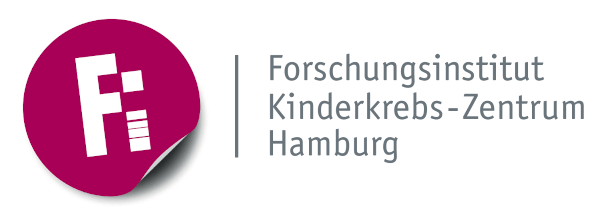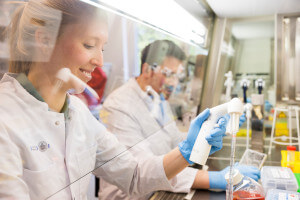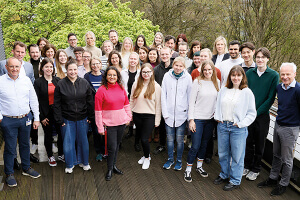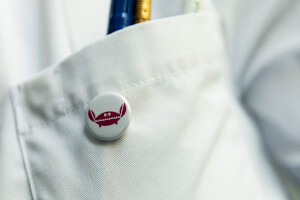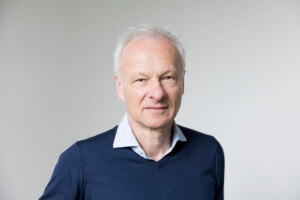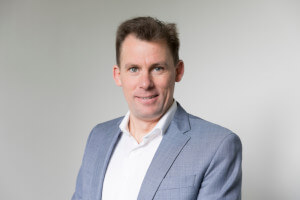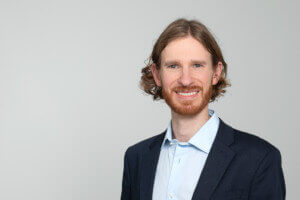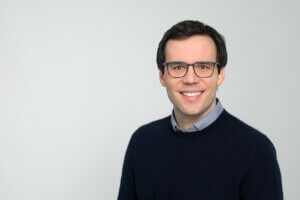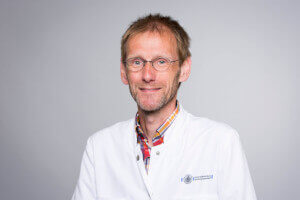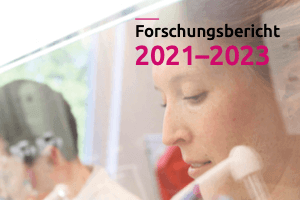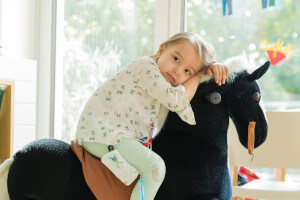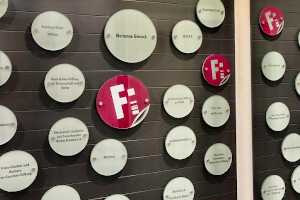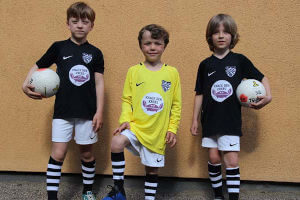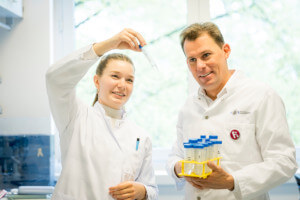
A warm welcome! Dr. Marius Mader starts new working group at the Research Institute Children's Cancer Center Hamburg
What role do immune cells play in childhood brain tumors? Dr. Marius Mader and his research group at the Research Institute Children's Cancer Center Hamburg will address this question starting October. The aim is to manipulate the immune system to fight brain tumors efficiently. The pioneering findings from his time at Stanford University will form the basis for new treatment approaches that will one day be used in the clinic.
In addition to tumor cells, more than half of brain tumors consist of specific immune cells, so-called myeloid cells. Paradoxically, these immune cells do not fight the cancer but protect it from attacks by the immune system and promote its growth. This is relevant for brain tumors, including childhood gliomas, for example.
With his new research group at the Research Institute Children's Cancer Center Hamburg, Dr. Marius Mader wants to understand better the role myeloid cells play in the development of gliomas. "The overarching goal is to develop novel therapeutic methods based on exchanging and manipulating myeloid cells," says Mader. This should enable the body's immune system to fight the tumor efficiently.
Exchange of misdirected immune cells
Over the past five and a half years as a postdoctoral researcher at Stanford University in California, USA, Mader and his colleagues have developed protocols for exchanging myeloid cells in the brain. This pioneering work forms the basis for therapeutic concepts that can one day be applied in the clinic. Researchers have shown that exchanging misprogrammed myeloid cells for donor cells works in preclinical disease models of neurometabolic, neurodegenerative, and neuroinflammatory diseases. These are models of diseases such as Alzheimer's and multiple sclerosis.
Bringing research concepts into clinical application
"My interest lies more in translational research than in basic science, i.e., implementing scientific concepts in a way that benefits patients," says Mader. "This requires optimal scientific conditions and a close clinical network, which is given at the Research Institute Children's Cancer Center Hamburg at the UKE in Hamburg." He is also excited about the existing expertise in childhood cancer: "I'm looking forward to working with my new colleagues and contributing my expertise in a meaningful way." At least in the clinic, he might meet some familiar faces, as Mader already worked as a resident physician in the Department of Neurosurgery at the University Medical Center Hamburg-Eppendorf before his stay in the USA.
